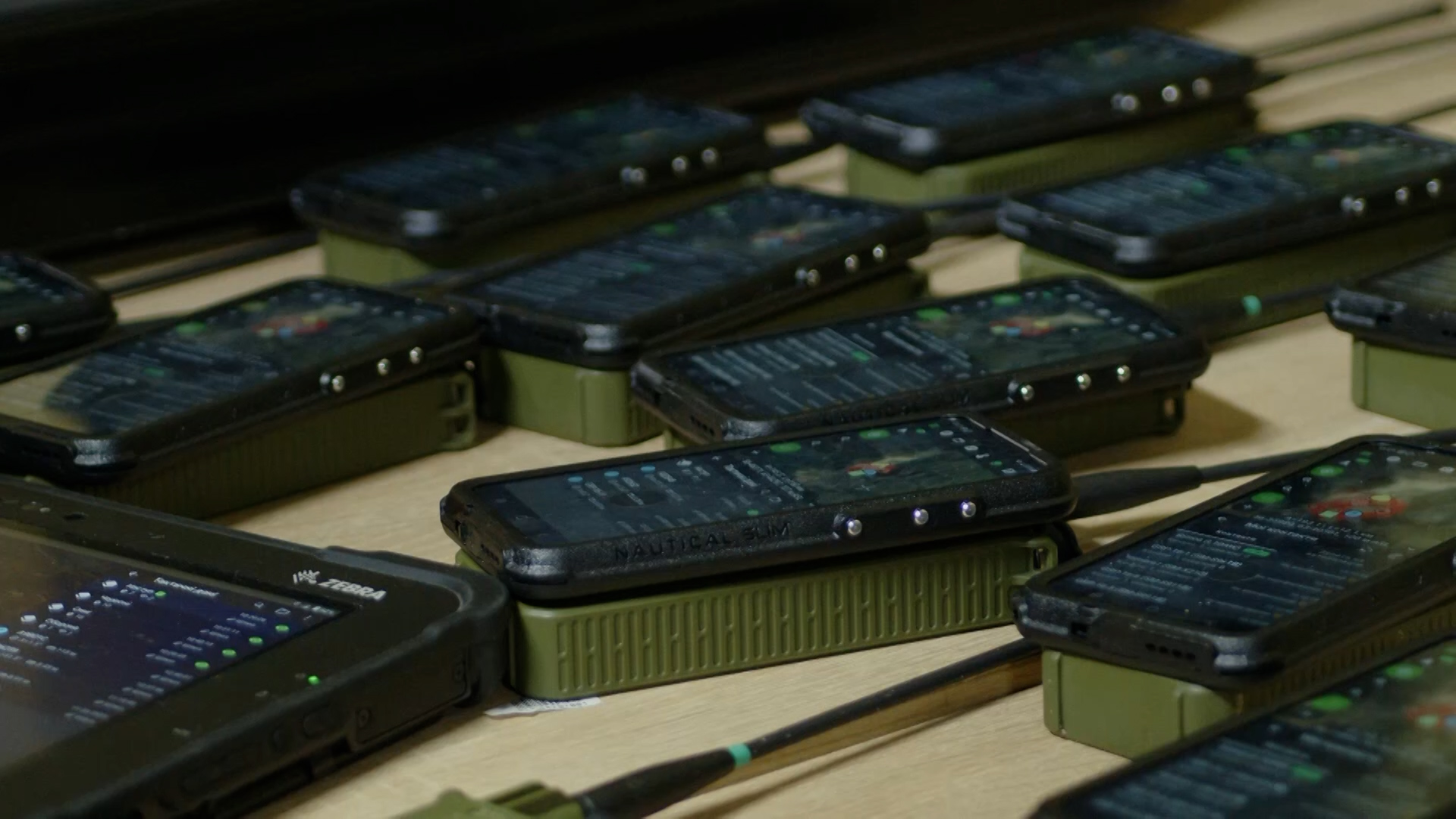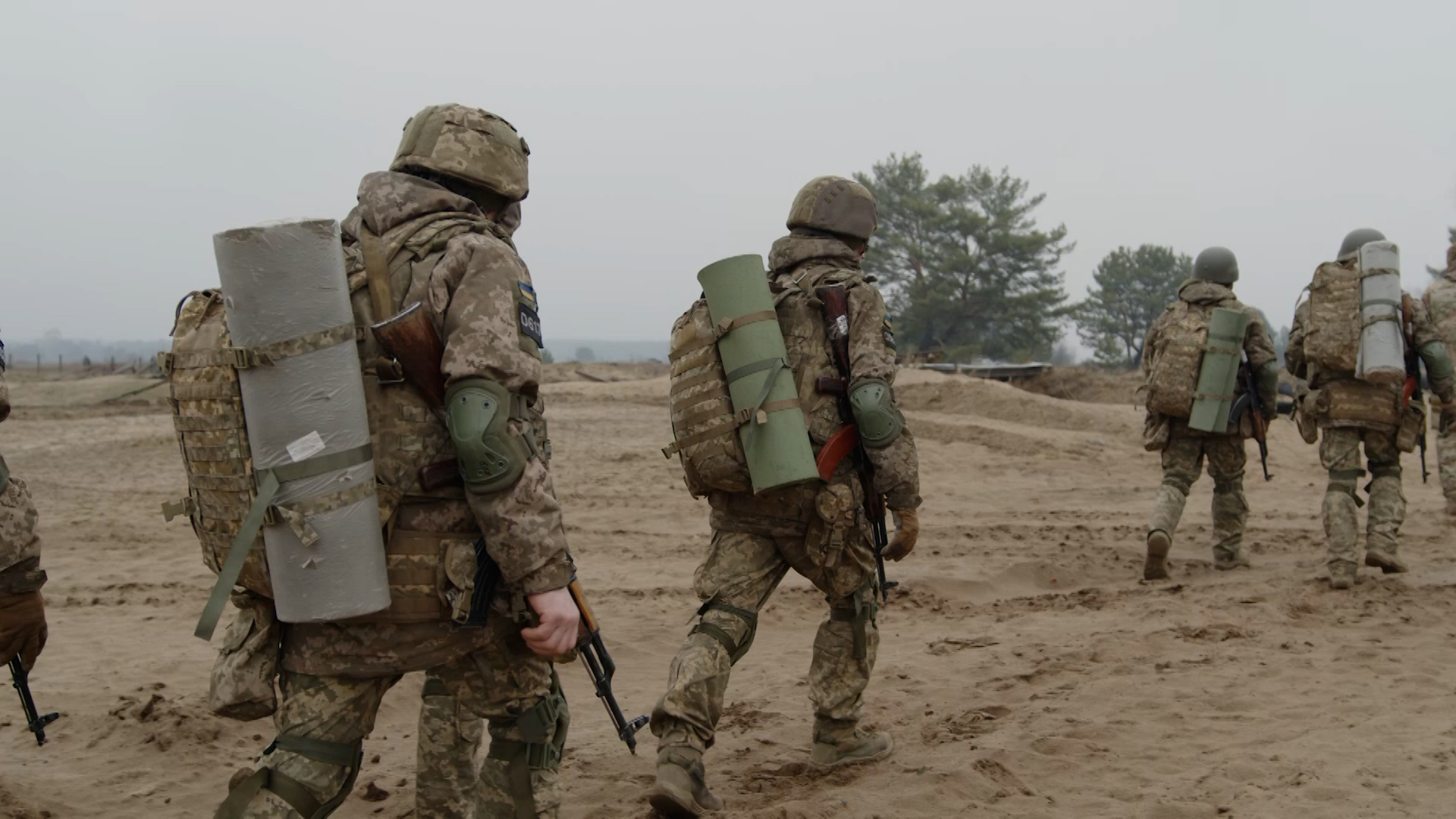Ukrainian defence tech making huge leaps thanks to soldiers' combat experience
One side-effect of the war in Ukraine has been the huge boom in domestic defence startups.
Ukraine now has thousands of companies producing weapons and cutting-edge defence technology.
These battle-tested products are likely to be in high demand as Nato countries re-arm in the coming years, with one such product being the radio.
On the bloody battlefields of Ukraine, communication is everything and, as such, both sides employ sophisticated electronic warfare to try to jam each other's comms.
But for Ukraine, the Himera hand-held radio – which was developed and built in a matter of months by a small startup – is providing a home-grown solution.
It's yet another example of how this war is compressing innovation cycles and rewriting the rule book when it comes to defence procurement.
And that lightning development speed is something seen across Ukraine's growing defence sector.

Himera has already delivered 6,000 of its radios to the Ukrainian military and is producing around 1,000 handsets a month.
All the company's products are tested in real combat conditions, with soldiers providing feedback direct from the frontline.
What makes this radio so special? Himera has developed software that makes it immune to jamming.
And the mesh network uses low-power repeaters which are much harder for the Russians to find.

The overall capacity of Ukraine's defence industry has rocketed from $1bn in 2022 to $35bn today, and Kyiv now produces a third of all the weapons and ammunition it uses.
And with the US pivoting away from Europe, Ukraine – with years of combat experience – is set to become a major supplier, particularly of drones.
Himera recently joined forces with a Canadian firm that specialises in quantum-secure data protection, the next evolution in encryption and counter-jamming.
As Nato countries ramp up military spending, the demand for cheaper, combat-tested tech will only increase.
So Ukrainian firms like Himera, with their vast wartime expertise, are likely to play a major role in Europe's move to greater war readiness.









